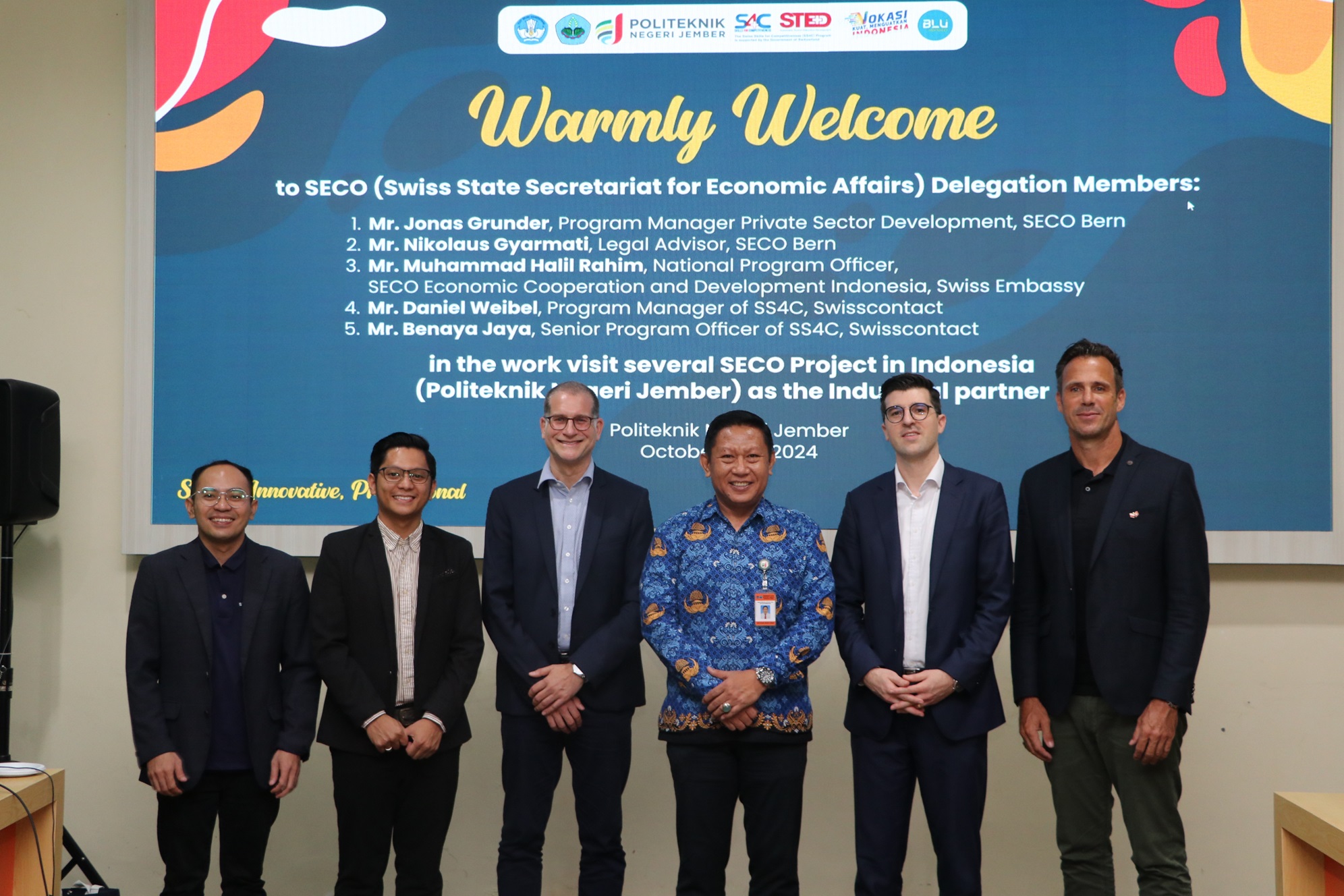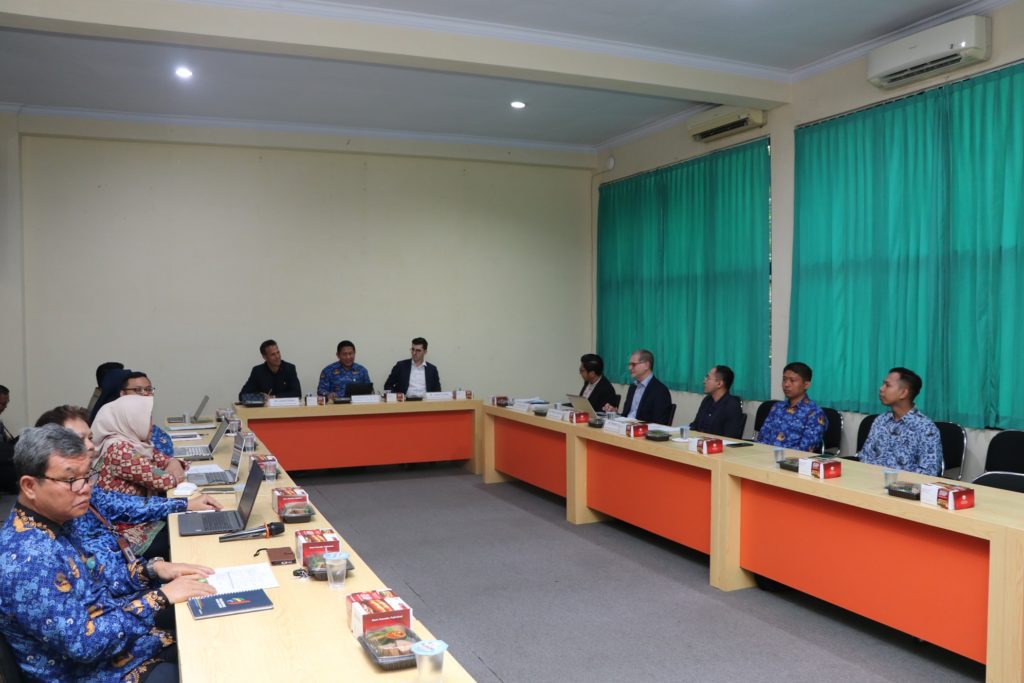

Politeknik Negeri Jember (Polije) warmly welcomed a delegation from the Swiss State Secretariat for Economic Affairs (SECO) as part of an official visit to strengthen collaborations between Indonesia and Switzerland. The SECO delegation comprised key officials, including Mr. Jonas Grunder (Program Manager for Private Sector Development, SECO Bern), Mr. Nikolaus Gyarmati (Legal Advisor, SECO Bern), Mr. Muhammad Halil Rahim (National Program Officer, SECO Economic Cooperation and Development, Swiss Embassy), Mr. Daniel Weibel (Program Manager of S4C, Swisscontact), and Mr. Benaya Jaya (Senior Program Officer of S4C, Swisscontact).
During the visit, the delegation engaged in a series of discussions and presentations focusing on the involvement of the private sector in educational development. The morning session included presentations on Polije’s profile, its operations, and the role of private sector cooperation in enhancing curriculum and teaching through the Ministry of Education’s programs. Highlights of the session featured examples of Polije’s successful partnerships, particularly in integrating Industry-Based Curriculum (IBC) into its learning modules.
Following the discussions, the delegation toured Polije’s campus, with a special focus on the Teaching Factory (TEFA). They observed various TEFA projects, including bakery, fish canning, and milk production, to understand the institution’s approach in merging education with real-world industry practices.
Mr. Jonas Grunder from SECO expressed his admiration for the innovative initiatives being carried out at Polije. “We are impressed by how Polije integrates industry into the curriculum, preparing students with practical skills that align with the demands of the private sector. This model of cooperation between academia and industry is something we value and look forward to supporting further,” he said. He also added, “The warmly welcome we received from Polije was truly remarkable, and we are deeply impressed by the institution’s achievements in creating a learning environment that bridges education and industry.”
Mr. Daniel Weibel of Swisscontact emphasized the importance of ongoing support, saying, “Polije’s teaching factory is an exemplary case of how vocational education institutions can bridge the gap between theoretical learning and practical application. The visit today has given us many ideas for potential future collaborations. Through SS4C, we will continue to support Polije, particularly in involving the private sector, as we move forward into the second phase of the project and different from the first phase that we did so many things, in the 2nd phase we will focus on a views things through the development of private sector in collaboration with KADIN”.
In the afternoon, the delegation visited PT Mitra Tani Dua Tujuh, one of Polije’s industrial partners. The company shared best practices in conducting structured internships, which are crucial in providing students with hands-on experience, further strengthening the relationship between the private sector and education. (rda)